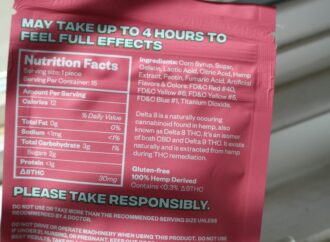Ketchup is one of the most ubiquitous condiments out there, which compliments food from a variety of cuisines. Owing to its versatility, it has become a staple occupant of all of our kitchen shelves.

Ketchup originated in the United Kingdom and were made from mushrooms as the primary ingredient. Almost a century after the appearance the mushroom ketchup, in the early 1800s the tomato variant sprouted. Jonas Yerkes was the first to sell tomato ketchup in a bottle. F. & J. Heinz followed suit and industrialised the tomato ketchup manufacturing process to become one of the leading modern day manufacturers of ketchup in the world. The early tomato ketchup involved simple ingredients like tomatoes, sugar, and vinegar, with seasonings and spices. Depending on individual preference ,flavours were modified to include onions,allspice, coriander, cloves, cumin, garlic, mustard, and sometimes celery, cinnamon, or ginger. With commercialisation, today’s store-bought ketchup is made of tomato concentrate , distilled vinegar, high-fructose corn syrup, corn syrup, salt, spices, added flavours, thickeners and preservatives.
And, like most food items, even ketchup can be subject to adulteration, and as consumers, we must be aware of the prevalent malpractices in the ketchup industry.
Common Adulterants
Make certain that you aren’t consuming adulterated ketchup. Here are some of the most common adulterants found in ketchup that you should watch out for.

1) Formalin:
Tomatoes are often stored in a chemical called formalin for the purpose of preservation. Owing to this practice, formalin is often found in ketchup and can prove to be detrimental to human health. Formalin in large quantities can be lethal to our vital organs (such as the liver and pancreas) by causing severe inflammation. It can also lead to gastritis and sudden death if consumed in high doses.

2)Cheaper, sub-standard and spoiled vegetables:
Tomatoes are often replaced with cheaper alternatives, and even spoiled vegetables, while preparing ketchup. Vegetables and fruits like carrots, papayas, and red pumpkins are often boiled and used as a cheap substitutes for tomatoes. In one particular incident in 2016, on testing samples of sauces from eateries in Hyderabad, the food safety inspectors found that majority of the eateries were using adulterated chilli and tomato sauces. Most of the sauce samples showed a significantly high starch content, and it was also found that some of the samples contained water, dyes, sugar, rotten tomatoes and preservatives at levels higher than the legal limit. Experts have warned consumers that the continuous consumption of rotten vegetables processed into ketchup can lead to gastric disorders, stomach distension, and may also cause digestive problems in children. Additionally, consuming adulterated ketchup could also result in liver disorders and subsequently ailments like liver infection and cirrhosis.
 3)Synthetic dyes:
3)Synthetic dyes:
In order to give the sauce the appearance of authentic tomato ketchup, manufacturers often use adulterants like synthetic dyes and artificial flavouring. There was one such incident in Agra in 2016, where the Food Safety and Drug Administration (FSDA) threw out a hundred litres of adulterated synthetic sauce, which was suspected to contain chemicals that had the potential to cause cancer upon consumption.
How can we Detect Adulteration in Ketchup?
Put a tablespoon of the suspected ketchup in a glass of water. If the ketchup is unadulterated and made of quality tomatoes, it will sink and not give out a red colour quickly. However, adulterated ketchup will disperse quickly and give a thin red tint to the water. Additionally, it is always important to perform a taste test and see if the ketchup has the distinct taste of tomato.
Mix two grams of ketchup with a few drops of water to dilute it. Add a few drops of povidone iodine and mix. If the ketchup is adulterated with starch, the ketchup will turn purple.
Consumers Beware!
Ideally, quality ketchup must have a distinct red colour and a rich texture. Therefore, one must avoid buying ketchup that is orange in colour as it may be indicative of the presence of artificial flavouring agent or some unknown vegetable extract. One should also avoid buying cheap local bottles or packets of ketchup.
Stay on the safe side and buy reliable and tested ketchup brands that comply with the standards of food safety, even if they do cost a little more.
 Food Manifest
Food Manifest 















Leave a Comment
Your email address will not be published. Required fields are marked with *